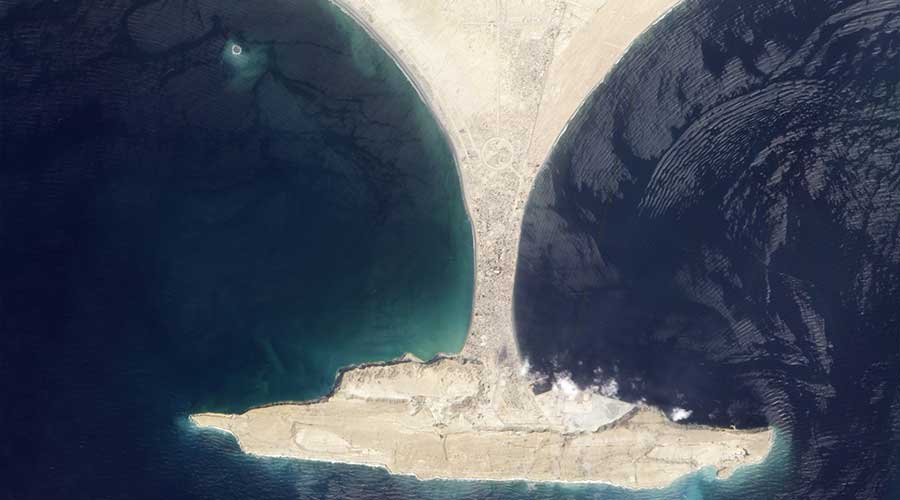Pakistan has installed nearly 330 modular blocks of artificial reef in Gwadar Bay of Balochistan coast at Rs 48.50 million to improve marine life.
The objective of this step is to generate at least $1 million annually through fishing and tourism besides ensuring marine biodiversity in the area. The modular blocks of artificial reef, with each weighing 1.5 tons in an area of four square nautical miles west of Jiwani town at Gwadar bay have been placed. The cost of setting up the artificial reefs is Rs 48.5 million.
A coral reef is an underwater ecosystem characterized by reef-building corals. Reefs are formed of colonies of coral polyps held together by calcium carbonate.
Coral reefs deliver ecosystem service for tourism, fisheries, and shoreline protection. The annual world economic worth of coral reefs is in billions of dollars. Coral reefs are fragile because they are sensitive to water conditions. They are under threat from excess nutrients, rising temperature, oceanic acidification, overfishing, blast fishing, cyanide fishing, etc.
Read more: Pakistan set to begin 750-acre Gwadar shipyard project
The artificial reef is an underwater manmade structure to promote marine life in areas with featureless bottom to control erosion, reduce poaching by trawlers, and help tourists to enjoy the marine biodiversity. The installation of artificial reefs, made of decommissioned vessels and other wrecks are common in many coastal areas of the United States, Australia, Malta, and New Zealand.
Ahmad Nadeem, the Director of the fisheries department in the government of Balochistan told the media, “These reefs will help local fishermen get access to diverse fish stock near the coast and boost their income manifold besides saving their time and fuel for the catch. The project would create new job opportunities for the 40,000-strong local fishing community, attract investment and help develop tourism.”
He said, “The reefs will become the special habitat, breeding ground, and shelter for marine life including fish in other four to five months. We are planning to replicate the project in other areas along the coast of Baluchistan.”





















